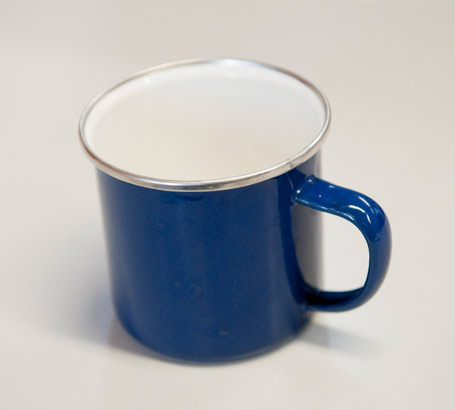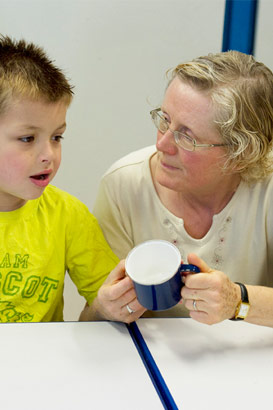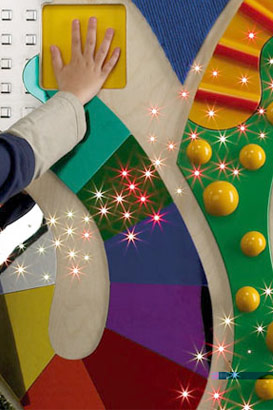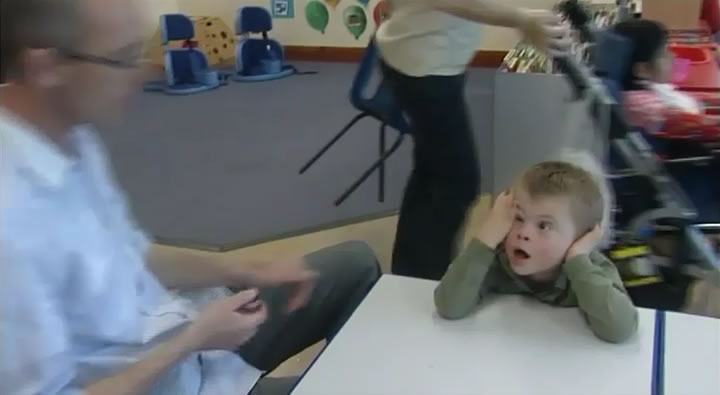
Objects of reference predated signing. Anyone can pick up an object of reference and show it to a child to communicate an activity, event or idea. Tactile trails are a recent addition to this stable and are found in sensory rooms, classrooms, inside and outside school.

Objects of reference is a term that describes the use of objects as a means of communication. Objects, just like words, signs and symbols, can be made to represent those things about which we all communicate:
- Activities
- Events
- People
- Ideas
Just like words, signs and symbols, they have to be chosen with care. To find out more, read the full article 'Introduction to Objects of Reference' by Keith Park. This can be found on the Ace Centre website. You can also read more about this area in the RNIB's Effective Practice Guide - Objects of reference.
In this clip, an object of reference enables a child to be led from the classroom to the playground.

Tactile experience is a fundamental part of every person's overall sensory experience of the environment that they exist in. In the early days of the creation of tactile panels, people questioned the need for them. Some stated that one might just as well go outside and touch natural materials and experience what is around one.
You can and should do all of these things, but they are not always available to everyone and do not often appear in abundance in built environments. Tactile experience is particularly appropriate for people with learning difficulties and visual impairment, because they can act as very strong indicators and offer stimulation for communication and interactivity.
This image has been taken from The Language of Texture by Mike Ayres.
